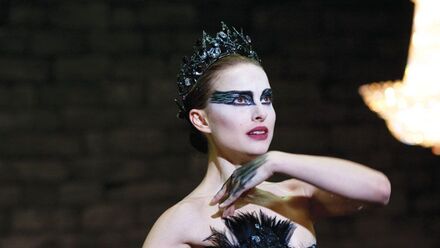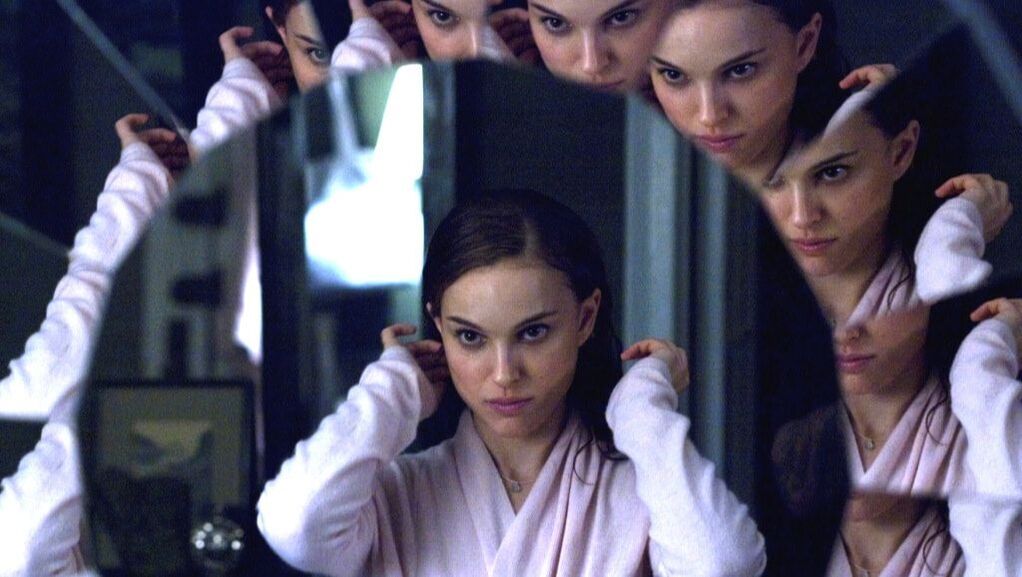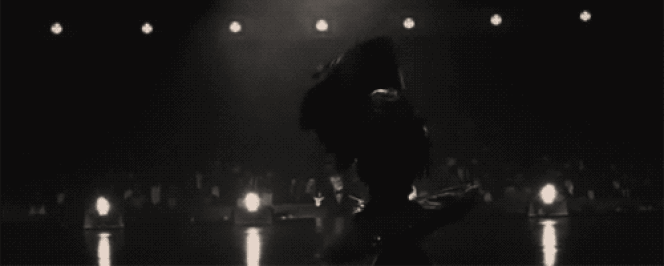 My first step through the dark glass of Black Swan came on a second date with a man who would later become my fiancé... ...We’d known each other previously and though we’d been on one official date already, my mind always executes this odd permutation wherein I remember this particular outing as our first real date. The greater part of me believes it had something to do with the connection we experienced seeing it together. Being at the mercy of the raw dark energy of it, experiencing it like a live performance, alive in that moment. We were both in art school at the time, and I’ve always felt that Black Swan hits different when you have that raking nagging impulse to create and the equally burning need for it to be transcendent, perfect. Few films capture that in the way that Black Swan does. We talked about it the rest of the night. The true first steps of the project began sometime at the beginning of the aughts, with a reading of Fyodor Dostoevsky’s The Double and a subsequent viewing of Pyotr Tchaikovsky’s ballet Swan Lake. The themes of duality, rivalry, awakening, obsession, betrayal, and madness are woven together to form the core of Black Swan. It’s been 10 years since the film's release, but I still find myself thinking from time to time about Natalie Portman’s unnerving transformation as ballerina Nina Sayers and her ultimate descent into delusion, paranoia, and insanity. From the opening moments when she fantasizes about dancing the Swan Queen in Swan Lake, she’s a vision of poise and control. She’s a bit meek and utterly relatable. A koi in a pond of piranhas who ultimately blossoms into a shark. Despite the decade that has passed the story still resonates, proving timeless. Because art and the desire for creation and expression and above all adulation, are eternal. There is no time in history where there haven’t been those who will strive for perfection at the cost of everything, including self. Black Swan often draws parallels with another film about artistic obsession and what one is willing to do for greatness, Whiplash. In the latter, Andrew (Miles Teller) a young drumming student endures unconscionable abuse at the hands of his jazz band instructor (J. K. Simmons) who posits, “There are no two words in the English language more harmful than, ‘good job’.” The films raise a lot of questions. Must an artist suffer for their art? What is the line between reasonable and unreasonable, passion and obsession? Can one create something perfect, something transcendent, without obsession? The world Nina inhabits is a perfect storm. She’s a pleaser who’s excelled in a highly competitive medium that will always demand more and more of both her body and her mind. Director Darren Aronofsky does incredible work deftly inserting us into the alien landscape of ballet behind the scenes without alienating us. We see quickly, both in rehearsal studio and her time spent at home, the demand dance puts on the body. Nina splays her toes and rotates her ankles and we’re tuned into the delicate symphony of cracks and crunching those movements produce. Rippling muscle and sinew, movements repeated ad nauseum for hours and hours, shattered toenails, the unseen blood and bone of the dancer’s work. Nina’s seemingly delicate hands rending and repairing shoes, stepping into a rosin box, crystalline shards crackling under foot to give her shoes purchase. It’s a grueling business made all the more grueling by dance company director Thomas Leroy (Vincent Cassel), a #MeToo relic who pushes the boundaries of artistic ethics and professionalism. He’s got the air of a predatory sophisticate. He speaks about the work of dance in a way that’s so heavy-handed it borders on hackneyed, but it rings true. For him, at least. We can see at once he’s the type to hook promising talents, suck them dry, and discard them, desiccated. We even get to witness the final act of this in the first half of the film as company star Beth Macintyre (Winona Ryder) is pushed out in favor of fresh blood. In watching it after so many years, I noticed things I didn’t before about the relationship between Beth and Nina. Nina lives somewhere between fear and awe when it comes to Beth and there’s some interesting moments of power transference as Nina ascends in time with Beth’s withering. One of Nina’s first moves toward shedding her alabaster plumage in becoming the black swan comes when she steals a tube of lipstick from Beth, regarding it as a talisman, a fetish, imbued with her power. And when Nina approaches Thomas about her desire to play the Swan Queen, she wears the lipstick, a nervy move for Nina, channeling Beth’s energy. After securing the role, Nina and Thomas’ relationship evolves further, Thomas always pushing the boundaries. His methods are wholly inappropriate but it’s hard to deny their efficacy. It’s at once appalling and alluring. The part of me that abhors abuse of power and sexual harassment is aghast, yet the part of me that’s in Nina’s head, that is suddenly that dancer, hungry to transcend myself, is drawn to it. It’s a dizzying grey zone for a perfectionist and a pleaser. The other arm of the storm at the heart of Nina’s descent is her mother, Erica (Barbara Hershey). It’s clear quite early on that Erica is or was an artist herself, one that never quite made it to where Nina is. She used her pregnancy as a way to distract from her mediocrity and pinned all her dreams on Nina. She’s a master at manipulation, weaving love and adulation with vinegar and negging. If Nina offers any pushback, Erica turns the figurative knife on herself, instantly disarming Nina. It’s an interesting take on the stage mom and the material here is ripe for interpretation ranging from mental illness to sexual abuse. (On an interesting side note, Barbara Hershey shaved and shaped her eyebrows so that they’d look more like Natalie Portman’s.) The concept of the dark glass, mirrors, and doubles, are used here with unparalleled skill, serving as motifs that constantly have both Nina and the audience questioning what is real and what isn’t. Nina’s reflection is often found betraying her, moving on its own. When the mirrors aren’t playing tricks on her, she’s seeing herself out in the world. A woman passing through light and shadow under scaffolding, a phantasm lurking in her bathroom, like a Michelle Branch song she’s everywhere. Enter the double, Lily (Mila Kunis). Aside from sharing similar features, she’s also the embodiment of the black swan. Everything that Nina is not. Imprecise but wild, passionate, and sexual, on stage and off. She’s the party girl to Nina’s wallflower. And though Nina immediately feels threatened, she’s again drawn to the power of another. A power she wishes to emulate and embody. It’s that push-pull relationship of kinship and perceived rivalry that pushes Nina to the heights of both her talent and her madness. The final act of the film is a breathtaking experience. The editing, cinematography, performances, and composer Clint Mansell’s mélange of Tchaikovsky and original composition put us into the moment like few other films ever have. After a decade I still found myself alive with goosebumps, eyes tearing with the rise and fall of the music, watching Nina fight herself and ultimately win as she completes her transformation. Watching it in the theater was a singular experience that I’m not likely to forget. Yet I found myself feeling the same way even at home. There’s something about Black Swan. Something that captures that essence of seeing something live. Though it was cut from the final film, I think Thomas’ words possess a truth about the experience, “What we do is beautiful but fleeting. Dance is not immortalized like music, poetry, or art, it doesn't grow old in museums and churches. It lives for now. For this moment only." By Paul Bauer
0 Comments
Leave a Reply. |
Archives
March 2023
|


 RSS Feed
RSS Feed